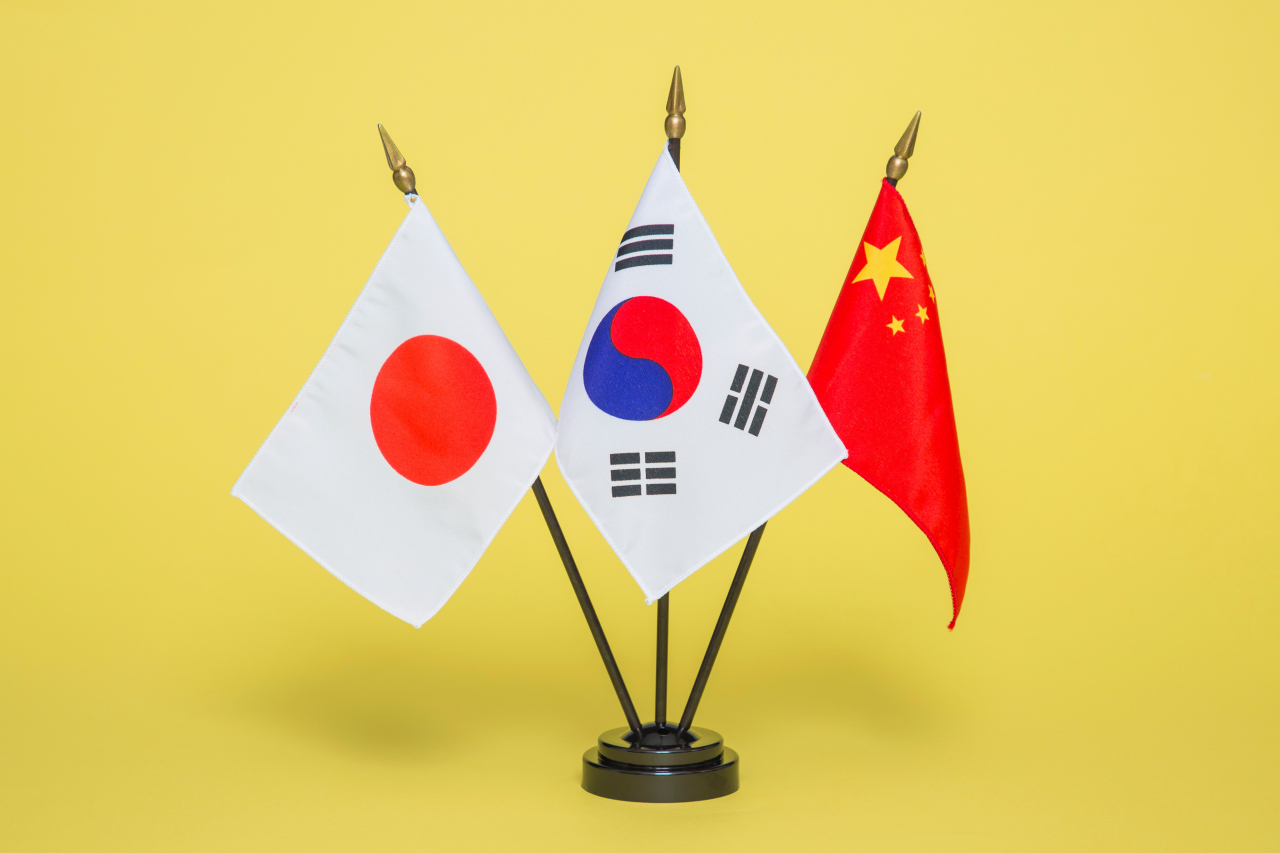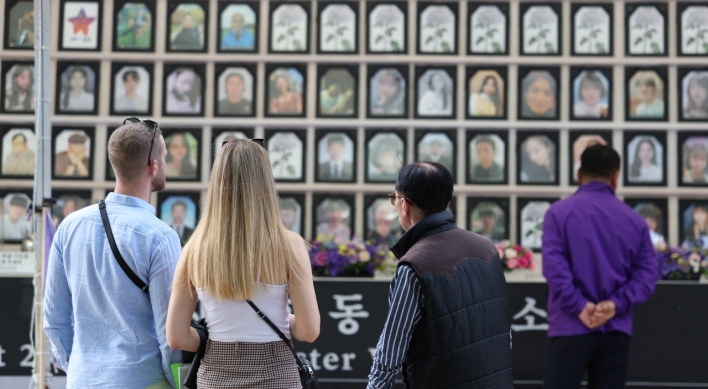S. Korea, Japan, China to hold high-level meeting
By Choi Si-youngPublished : Aug. 30, 2023 - 18:25

South Korea, Japan and China will soon convene a high-level meeting to discuss the resumption of their suspended leader-level talks, ending the four-year hiatus prompted by the COVID-19 pandemic, as Seoul looks for better ties with Beijing.
The Foreign Ministry in Seoul said Wednesday it is looking into dates with its Japanese and Chinese counterparts, in response to reports that the meeting laying ground work for the trilateral summit will take place in late September. The ministry has said preparations are underway to host the trilateral summit within this year.
The announcement comes at a crucial time when Korea is facing increasing pressure to do something about its relations with China, a neighbor that Seoul is somewhat at odds with over issues involving the US-China rivalry.
At Camp David on Aug. 18, Korea, along with the US and Japan, condemned China’s aggression. That includes Beijing’s claims it could take over Taiwan, the self-ruled democratic island Washington supports. Korea openly resists changing the status quo by force. China says such a US-led coalition could threaten regional security.
Signs of a potential breakthrough in Seoul-Beijing ties were clearer Tuesday, when Second Vice Foreign Minister Oh Young-ju and her Chinese counterpart agreed to jointly work on stabilizing supply chains in her trip there.
Analysts expect few hurdles to the resumption, saying reeling in Seoul and Tokyo serves Beijing’s interests more now than ever.
“If China keeps pushing and pushing the two away by ignoring calls for reviving whatever regular meetings bringing them together, South Korea and Japan would more lean on the US instead,” said Kang Jun-young, a professor of Chinese studies at Hankuk University of Foreign Studies in Seoul.
The three-way meeting, hosted by the three on a rotational basis, focuses on expanding economic ties, something they have fewer disagreements over than resolving political issues, Kang said, referring to the Taiwan issue.
But Chung Jae-hung, director of the Center for Chinese Studies at the Sejong Institute, said unless Seoul and Beijing resolve their “fundamental differences” over such political issues intensifying the US-China competition, the three-way summit is likely to produce little, if any, meaningful economic progress even if they take place.
“Thinking otherwise is overly rosy and optimistic, because China won’t compromise on its core interests,” Chung said of the Taiwan issue. “China has already factored in a pro-US South Korea and doesn’t consider reversing that as urgent as South Korea thinks it is.”
He added that expecting a separate summit between the two countries’ leaders is also a stretch, citing reports that the two could meet on the sidelines of either the G-20 meeting in September or the Asia-Pacific Economic Cooperation meeting in November. Neither side has openly confirmed any details.
But Kang, the Chinese studies professor, noted that a summit is itself helpful even without some grand deals reached, because it helps prevent engagement momentum from stalling. “And Yoon and Xi and their advisers are aware of that,” Kang said.







![[Music in drama] Rekindle a love that slipped through your fingers](http://res.heraldm.com/phpwas/restmb_idxmake.php?idx=644&simg=/content/image/2024/05/01/20240501050484_0.jpg&u=20240501151646)



![[New faces of Assembly] Architect behind ‘audacious initiative’ believes in denuclearized North Korea](http://res.heraldm.com/phpwas/restmb_idxmake.php?idx=644&simg=/content/image/2024/05/01/20240501050627_0.jpg&u=20240502093000)







